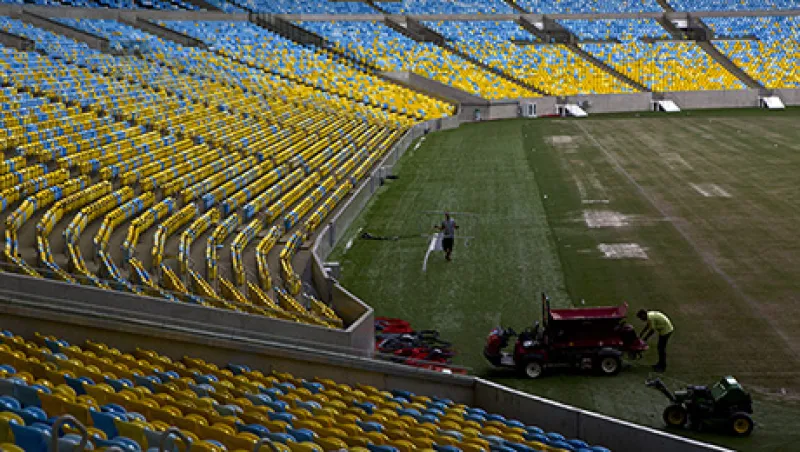
Workers make final preparations to the field at Maracana Stadium in Rio de Janeiro, Brazil, Monday, May 26, 2014. When Brazil was handed the opportunity to host the World Cup in 2007, thousands took to the streets to celebrate. Since then the mood has soured as South America's biggest country has struggled with its preparations amid public anger at the $11 billion price tag. Photographer: Dado Galdieri/Bloomberg
Dado Galdieri/Bloomberg


